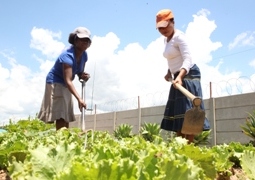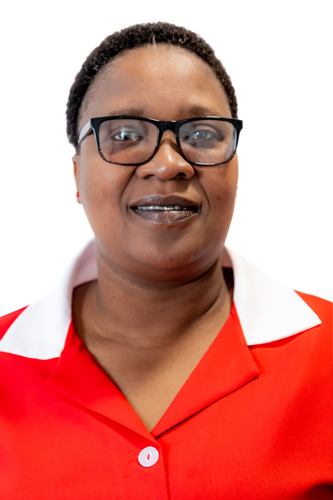
The Minister of Agriculture, Forestry and Fisheries (DAFF), Mr Senzeni Zokwana, tabled the 2017/18 budget of the DAFF before the National Council of Provinces (NCOP) yesterday during DAFF’s policy vote debate.
Mr Zokwana told NCOP MPs that DAFF has been allocated a budget of R6 807 billion for the 2017/17 financial year of which R3 775 billion is ring-fenced for transfers of conditional and parliamentary grants. According to Mr Zokwana, in terms of Conditional Grants, R1 645 billion has been allocated to the Comprehensive Agricultural Support Programme (Casp).
The Revitalisation of the Agriculture and Agro-Processing Value Chain (RAAV) is among the Nine-Point Plan plans to boost economic growth needed to create much-needed jobs. “Informed by the National Development Plan, the RAAVC sets a target of one million jobs by 2030. A sizeable portion of these jobs reside within the agro-processing sector and through the support of smallholder producers,” emphasised Mr Zokwana.
For the 2017/18 financial year, DAFF seeks to continue the strategic approach of RAAVC in partnership with relevant national departments, such as the Department of Rural Development and Land Reform, and the Department of Trade and Industry, including sector organisations, labour organisations, and civil society. “It is my intention to finalise the allocations for the West Coast Rock Lobster and Abalone sectors by 31 July this year,” he said.
Highlighting the successes and the future projects of DAFF in the provinces, Mr Zokwana said in the Eastern Cape, a partnership with the Department of Land Reform and Rural Development and Wool Grower Association will see 13 projects supported with shearing sheds and rams. “My department will contribute R15.4 million towards the wool production in the current financial year.”
He said investment in macadamia nuts in the Eastern Cape has contributed towards improved livelihoods for the rural community of Ncera. He told the NCOP MPs that the production of macadamia nuts has now been extended to Willowvale. “A total of 14 aquaculture projects will receive R85 million and create 256 jobs. Poultry production has been allocated R128 million, which will benefit 46 projects and create 1 789 jobs. R243 million is set aside to support 94 red meat producers with stock and irrigation dams, dipping tanks and handling facilities.”
In the Free State, Mr Zokwana said during the 2016/17 financial year, the Free State Department of Agriculture and Rural Development was able to spend 98% of its R174 298 million Casp allocation. He said 38 projects were supported and a total of 2 424 people benefitted directly from the projects.
In KwaZulu Natal, Mr Zokwana told the NCOP MPs that in the 2016/17 financial year, the KwaZulu-Natal Department of Agriculture and Rural Development created 2 699 jobs through Casp and 2 219 jobs were created under Ilima/Letsema grant.
In Limpopo, Mr Zokwana said in the previous financial year, the Limpopo Province has through Casp supported a total of 447 farmers. Through the Casp support in Limpopo, 1 423 job opportunities were created, out of which 706 were for women and 133 for youth. He said communal area grazing lands are degraded and retrogressive succession of vegetation is notable in high population zones of Limpopo, mainly the Sekhukhune district.
In the Western Cape in the 2016/17 financial year, the Western Cape Department of Agriculture created 1 712 jobs through Casp. Mr Zokwana said through the Ilima/Letsema grant, the department managed to create 825 jobs.
He told NCOP MPs that the World Aquaculture Conference will take place in Cape Town from 26 to 30 June 2017 and will attract more than 3 000 delegates from over 100 countries.
The provincial MECs for Agriculture participating in the policy vote debate assured MPs of their departments’ commitment to achieving the National Development Plan 2030 vision. All the MECs highlighted the successes of Casp in their provinces and attributed those successes, in part, to the support they enjoy from DAFF.
Mava Lukani
14 June 2017

